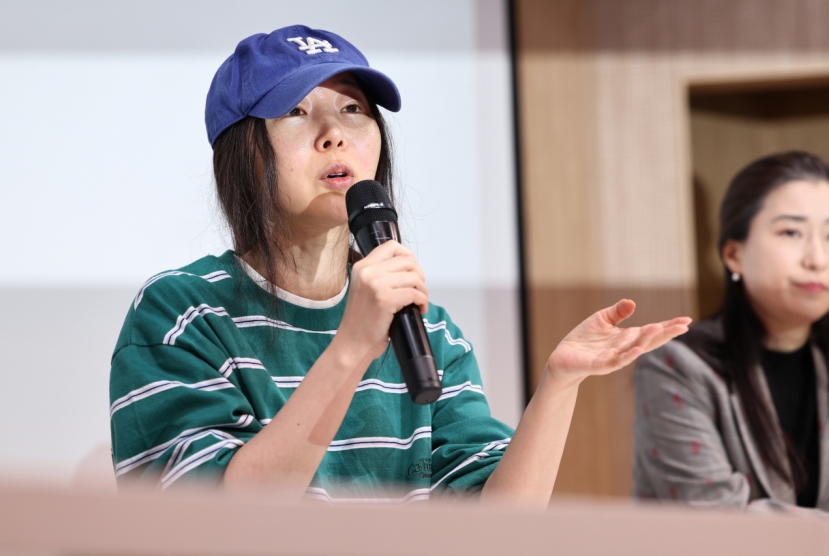Obama to discuss with Hu North Korea's nuke, provocations: White House
By 신용배Published : Jan. 14, 2011 - 11:39
WASHINGTON (Yonhap) -- North Korea will be on the agenda next week when U.S. President Barack Obama meets with Chinese President Hu Jintao at the White House, Obama's spokesman said Thursday.
"There will be discussion on global economic issues as well as security issues like North Korea and Iran and important issues of political reform and human rights," White House spokesman Robert Gibbs said.
Hu is due here Tuesday for a summit with Obama and a state dinner the following day, with an agenda that will include North Korea's nuclear-weapons program, long-range missiles and provocations against South Korea; the revaluation of China's yuan currency; Iran's nuclear ambitions; and improvement in bilateral ties.
North Korea heightened tensions on the Korean Peninsula last year to their highest level since the end of the 1950-53 Korean War with the shelling of a South Korean front-line island and the torpedoing of a South Korean warship, which killed 50 people, including two civilians.
U.S. Defense Secretary Robert Gates called on North Korea to refrain from making further provocations.
"If there is a common theme in my visits, it is the common interest of the United States, Japan, the Republic of Korea and China for there to be stability and peace on the Korean Peninsula,"
Gates said after a meeting with Japanese Defense Minister Toshimi Kitazawa in Tokyo earlier in the day. "This requires that the North cease its belligerent behavior and its provocations that have killed innocent victims, both military and civilian, in Korea."
On Friday, Gates will fly to Seoul for the third and last leg of his three-nation tour of Beijing, Tokyo and Seoul.
The chief U.S. defense official said in Beijing Tuesday that North Korea's missiles and nuclear weapons will pose a threat to the U.S. within five years, and urged North Korea to impose a moratorium on nuclear and missile testing to help revive the six-party nuclear talks deadlocked for two years over the North's provocations.
North Korea detonated nuclear devices in 2006 and 2009, and conducted long-range missile tests in 1998 and 2006 which were said to be a partial success.
Pyongyang is believed to have several nuclear weapons, with some experts saying it could have developed nuclear warheads small enough to be mounted on ballistic missiles with the help of China or Pakistan.
North Korea also revealed in November a uranium enrichment plant that could serve as a second way of building nuclear bombs in addition to its existing plutonium program, despite Pyongyang's claims it is producing fuel for power generation.
Gates said that North Korea should show seriousness in its denuclearization and an end to provocations before resuming bilateral and multilateral dialogue with the international community.
"We are supportive of negotiations and engagement between the North and South, but there must be concrete evidence on the part of the North that they are finally serious about these negotiations,"
Gates said. "How do we move the process forward on the peninsula in a way that shows that the North Koreans are serious about engagement, serious about negotiation, and that this is not just a repeat of what we have seen so often in a past after a provocation of trying to reset the clock, if you will, back to where it was
before."
Pyongyang in recent weeks has made a series of peace overtures.
In its most recent proposal for unconditional inter-Korean dialogue, Pyongyang on Monday called for a meeting of working-level officials later this month to prepare for possible ministerial-level talks.
Suspicious of the North's history of creating tensions to win economic aid, South Korea proposed that the sides hold talks to discuss the North's shelling of Yeonpyeong Island and torpedoing of the Cheonan.
Seoul and Washington insist that Pyongyang apologize for the provocations before any resumption of bilateral or multilateral talks.
China, the North's staunchest ally, has called for an early, unconditional resumption of the six-party talks that also involve the two Koreas, the U.S., Japan and Russia.



![[Herald Interview] 'Amid aging population, Korea to invite more young professionals from overseas'](http://res.heraldm.com/phpwas/restmb_idxmake.php?idx=644&simg=/content/image/2024/04/24/20240424050844_0.jpg&u=20240424200058)















